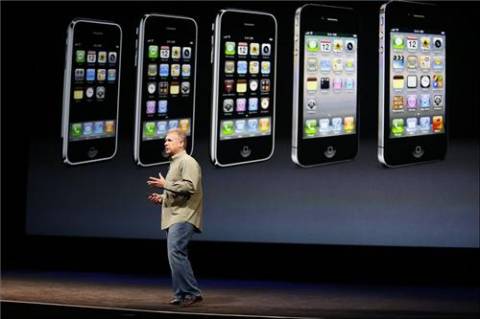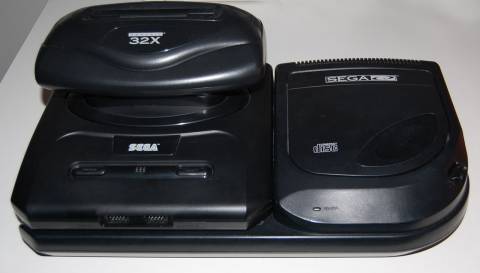"Well that's a stupid name. Why would they call it the Xbox One if it's the third Xbox? That's going to confuse the hell out of people." These were my thoughts a couple of weeks ago when watching the unveiling of Microsoft's upcoming console. Now I know that complaining about the names of consoles is rather stupid and pointless in the endgame, but a name like this clearly has to have some sort of philosophy behind it. It may be that Microsoft wanted the console to be the One box in your living room, the only One you will need. Yeah that would make some sense. But the name may in fact imply a much larger change in the way Microsoft is looking at its latest machine. Perhaps we will be seeing an Xbox Two much sooner than we might think.

The iPhone. What comes to your mind when you hear that word? A couple pieces of glass with a bunch of wizardry in between. The Apple logo, iOS and maybe Angry Birds. What most people certainly don't think of is the first iPhone. The bulky piece of plastic which now might as well be from the 1990´s. But that phone (or actually the iPhone 3G) was the phone which launched the iOS app ecosystem. Now I know that I'm suddenly talking about telephones and not video game consoles, but I'll get right back there in a minute.
Apple has built its app ecosystem slowly and methodically through several hardware and OS iterations. Games on the platform have evolved monstrously during the years, but you can still play those older iOS games like Angry Birds on modern Apple devices. On the other hand if you've decided to stick with your iPhone 3G you are not able to play some of the newer games which require an iPhone 4 or newer to work.
The Xbox One is essentially built around retail computer components. This kind of hardware is easy to develop for and most importantly, you can theoretically upgrade the console hardware without any issues with backwards compatibility. There has been a lot of talk about how Microsoft will start selling these consoles through service provider subsidies. Much like Apple is selling its phones.
What if Microsoft were to annualize the console hardware cycle? It's a fact that the Xbox One is underpowered compared to the PlayStation 4, although developers will not reach the limits of this set of hardware for a long time. When the time comes however, Microsoft could just put out a new box on the market with added performance and a new form factor. We're already used to manufacturers refreshing the console hardware visually a couple of times during the console generation.
But why would Microsoft (and likely Sony as well) want to alienate their customers by coming out with new hardware once a year or maybe every two years? Well what if the games designed for the Xbox Two would also work on the Xbox One, just not quite as well. Since these consoles are built around computer hardware it should be rather easy for developers to include equivalents of low, medium and high graphics settings in their games. A few years down the line Xbox Four games would still work on the Xbox Two, but the first gen hardware would start to slowly get phased out. Since these consoles will be sold through a subsidized model, people would probably want to upgrade their box every two years anyways.
This way we would see a much more gradual evolution in game graphics, similar to the PC. Developers would also theoretically never have to fully push the limits of the console hardware and all games would be backwards compatible in the same way as all your games from a few years back still live on your Steam account. From a business standpoint on the manufacturers side they could of course reap the benefits of selling successive consoles to customers instead of the one every seven years they have in the past.

Now there has of course been failed attempts at extending the life of the console cycle through hardware add-ons in the past. These past systems however required separate media to function and the games were not compatible with their original systems. So games developed for the 32x for example could not count on the install base of the Mega Drive (Genesis for our American cousins) for game sales. With digital game sales this problem is no more. As long as the game supports a separate lower visual fidelity standard it would work on the previous iteration of the console.
After seeing how the PS3 and 360 started showing their age during the last couple of years I for one would be ready for a more gradual evolution with these new consoles rather than the revolutionary jumps we now see once in eight years.
Log in to comment